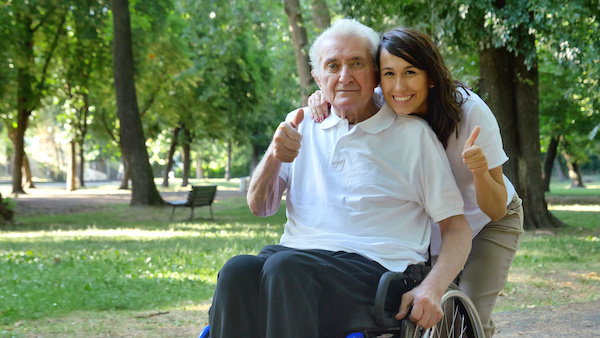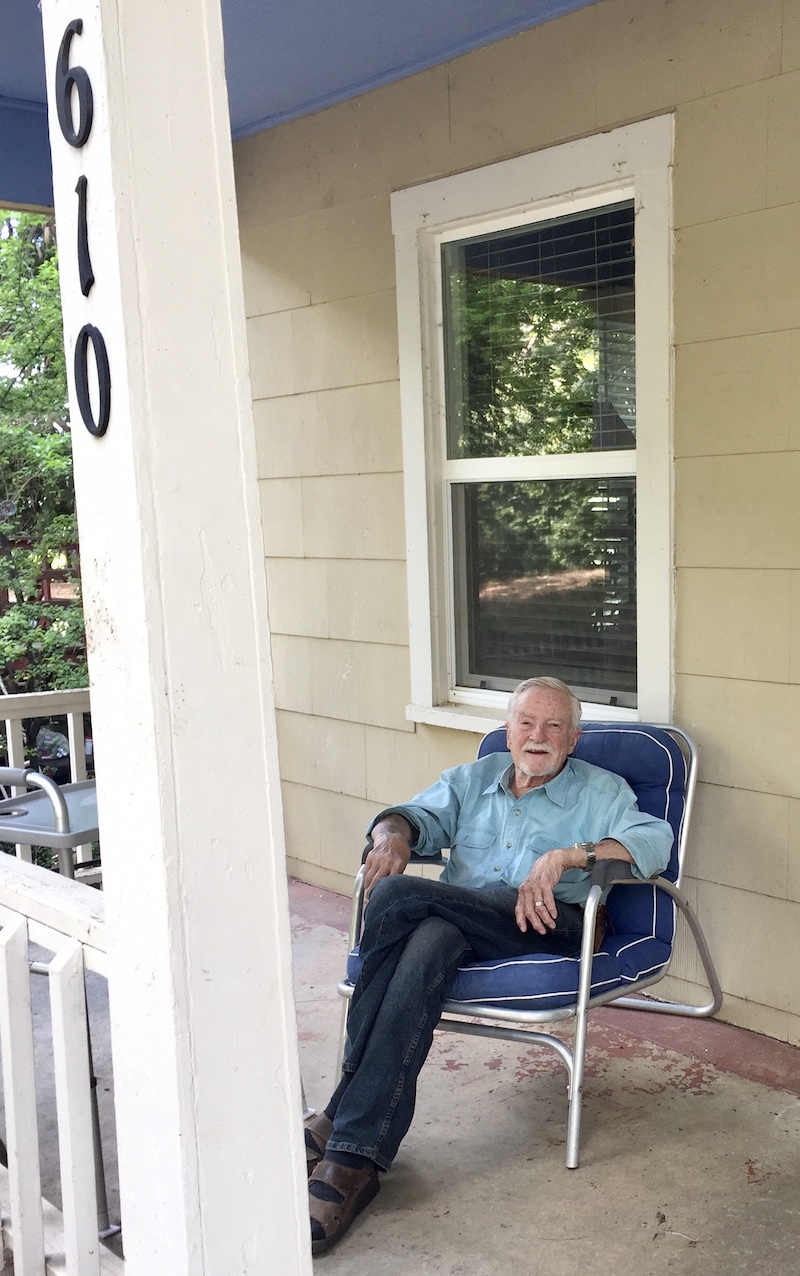How to Know If Your Senior Is Safe to Drive

I walked out to greet my 80-year-old dad as he pulled into my driveway in his Dodge Journey. I couldn’t help but notice that his side mirror was hanging by a wire.
“Dad, what happened to your mirror?”
“I’m not exactly sure . . . “ came back his reply.
NOT EXACTLY SURE?!
The Dodge was looking tattered as this was the third bump and scrape in a month. Should my dad still be driving?
Was he a danger to himself and to other people on the road? And if so, how could I get him to stop driving? As a professional landscape photographer and outdoorsman, he regularly “hit the road.”
As it turns out, he didn’t stop driving until he was hospitalized after a fall and was diagnosed with trauma-induced dementia.
I discovered that it is difficult to get a license revoked. Here are 5 things to know about senior driving safety.
- DMV testing of seniors varies by state. This AAA list shows state requirements for elderly driver testing start at age 70, 75, 80 or in some states, not at all. The DMV tests may include eye tests, reaction tests or road tests.
- Your senior’s doctor may recommend that he or she does not drive and some states actually have physician reporting requirements if they feel it is medically unsafe for the person to drive. My dad’s doctor told him he couldn’t drive for six months after he had a seizure. That didn’t stop him from driving.
- Some people adopt creative approaches to making the car “not available,” like unhooking the battery or having a friend or family member “borrow” the car.
- Keep in mind that driving and independence go hand in hand. For some seniors, losing the ability to drive is the point they move to assisted living or a nursing home. According to a Gerontologist magazine study, “Physician reporting laws and age-based licensing requirements are often at odds with older driver’s need to maintain independence. Physician mandates do not yet yield significant older driver safety benefits, possibly to the detriment of older driver’s well-being and independence.”
- This American Geriatrics Society Driver Safety interactive quiz will give you suggestions for monitoring your senior’s driving safety.
Walking that line between independence and safety sometimes feels like a tightrope.
Now may the Lord of peace himself give you peace at all times in every way as you help your senior in their waning phase of life.


